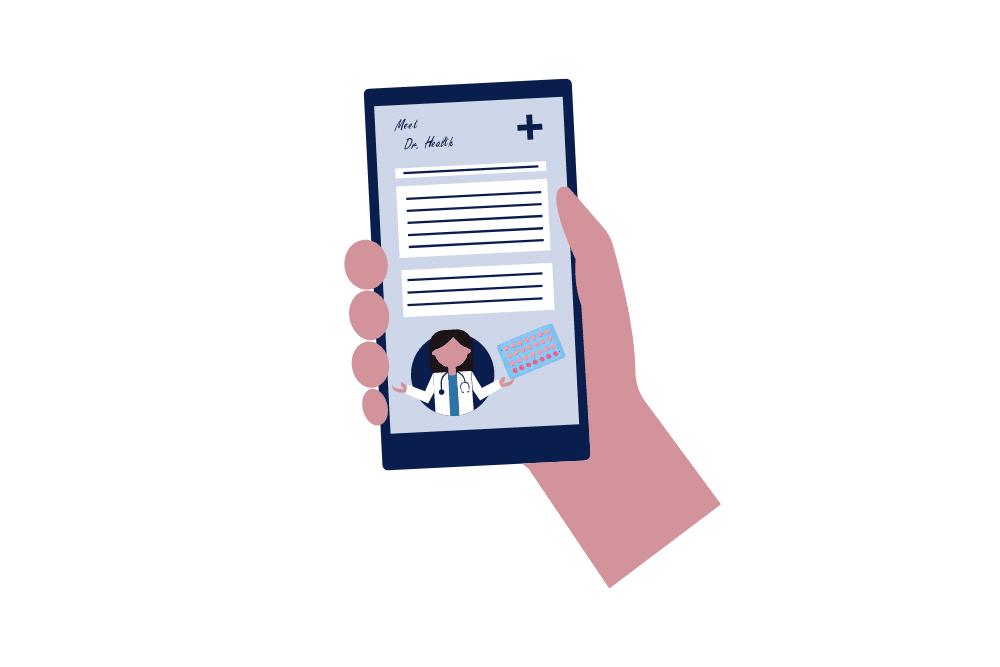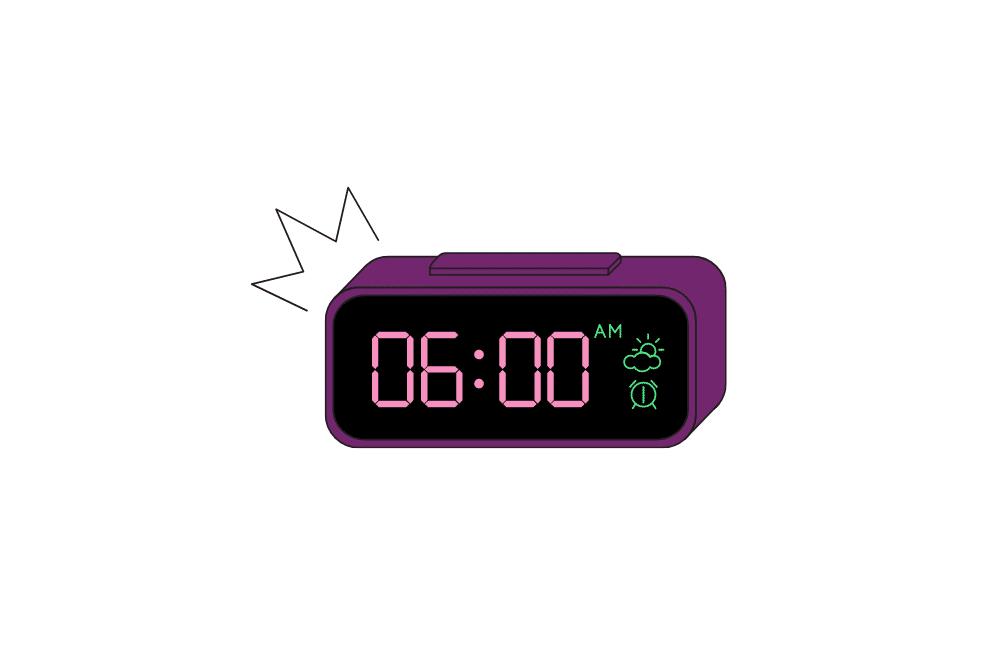When it comes to contraception, birth control pills have long been a popular choice among women. However, one burning question often arises: “Are birth control pills safe?” The truth is that birth control pills are generally safe and effective for most women when used as directed, but they do carry some potential risks and side effects.
In this blog, we uncover the safety of birth control pills, sharing the facts, risks, and benefits, empowering you to make informed choices for your reproductive health.
Are Birth Control Pills Safe?
Birth control pills, often simply referred to as “the pill,” are a form of hormonal contraception. They are typically taken orally and are designed to prevent pregnancy by suppressing ovulation and altering the cervical mucus to make it more difficult for sperm to reach the egg. These pills come in various forms, including combination pills containing both oestrogen and progestin, as well as progestin-only pills, commonly known as the “mini-pill.”
Understanding Potential Risks
One concern that frequently arises regarding oral contraceptive pills is the risk of blood clots. Some studies have suggested a slightly increased risk of blood clots, particularly in women who smoke, are over the age of 35, or have a history of clotting disorders. However, the overall risk of blood clots as a result of birth control pills remains relatively low.
Weight gain is another topic that often circulates in discussions about birth control pills. While some individuals may experience slight weight changes while taking the pill , it’s important to note that the effect varies from person to person, and not everyone will experience this.
Breast cancer risk is a topic that has garnered attention in recent years. Research has shown that there may be a slightly increased risk associated with long-term use of hormonal contraceptives. However, the overall risk is considered small, and discussing this with your healthcare provider in the context of your health profile is essential.
Evaluating the Benefits
When considering these potential risks, it’s equally vital to recognise the numerous benefits that birth control pills offer. They are highly effective in preventing pregnancy when taken as directed. Moreover, they can help regulate menstrual cycles, reduce menstrual cramps , and even improve skin conditions in some cases.
The safety of taking birth control pills is a multifaceted topic, and the decision to take them should be made in consultation with a healthcare provider who can assess your health needs and potential risks. It’s essential to weigh both the benefits and potential drawbacks to determine if birth control pills align with your personal health goals and lifestyle.

Are Birth Control Pills Worth the Risk?
“Are birth control pills worth the risk?” is a thought-provoking question that many individuals ponder when considering contraceptive options . The answer to this question depends on various factors, including your health, lifestyle, and personal preferences. Let’s explore this topic to help you make an informed decision.
Evaluating the Risks and Benefits
- Effectiveness: Birth control pills are highly effective , with a failure rate of less than 1% when used correctly. If preventing pregnancy is your primary goal, their effectiveness can make them worth considering.
- Menstrual Regulation: Birth control pills can help regulate menstrual cycles, reduce menstrual cramps, and manage conditions like polycystic ovary syndrome (PCOS) and endometriosis , providing relief for many women.
- Skin Benefits: Some individuals may experience improved skin conditions while on birth control pills, as they can help control acne. This benefit of the pill may even eliminate the need to acquire prescription acne medication for some adults .
- Convenience: Birth control pills are easy to use and do not require any special procedures or devices. They are discreet and can be taken in the comfort of your home.
Assessing the Risks
- Blood Clots: While the risk of blood clots is relatively low, it is a potential concern associated with birth control pills. Women with a history of clotting disorders or certain risk factors should discuss this with their healthcare provider.
- Weight Changes: Weight gain or weight loss is a possible side effect of birth control pills, although the impact varies from person to person. Sometimes, it’s normal for weight to fluctuate daily .
- Breast Cancer Risk: Some studies suggest a slightly increased risk of breast cancer with long-term use of hormonal contraceptives. However, the overall risk is considered small. It’s essential to check yourself for breast cancer regularly, whether using birth control or not.
The decision of whether birth control pills are worth the risk is highly individual. It’s essential to consult a healthcare provider who can evaluate your health profile and discuss the risks and benefits in the context of your situation. They can help you make an informed choice and explore alternative contraceptive methods, like the intrauterine device (IUD) , if necessary.

How Trustworthy Is the Birth Control Pill?
The trustworthiness of the birth control pill depends on several factors, including proper usage, individual health considerations, and personal preferences. Here are key points to consider:
Effectiveness
When used correctly and consistently, birth control pills are effective at preventing pregnancy, with a failure rate of less than 1%. However, their effectiveness can be compromised if not taken at the same time each day or if you miss doses.
User Responsibility
The reliability of the birth control pill depends significantly on the user’s diligence in taking it as prescribed. Missing birth control pills or taking them at irregular intervals can reduce their effectiveness.
Health Considerations
Certain health conditions or medications may interact with birth control pills and affect their trustworthiness. It’s essential to discuss your medical history and potential contraindications with a healthcare provider.
Variability Among Individuals
While birth control pills work well for many, their effects and side effects can vary from person to person. Some individuals may experience side effects such as weight changes, mood swings , or changes in menstrual patterns.
Additional Benefits
Apart from contraception, birth control pills offer other benefits, including menstrual cycle regulation, reduced menstrual cramps, and improved acne and skin conditions. These advantages contribute to their overall trustworthiness for some users.
Consultation with a Healthcare Provider
To determine whether birth control pills are a trustworthy option for you, consult a healthcare provider. They can evaluate your specific health needs, discuss potential risks, and provide guidance tailored to your situation.
Birth control pills are generally trustworthy when used correctly and in consultation with a healthcare provider. Their effectiveness in preventing pregnancy and potential benefits for other health conditions make them a reliable contraceptive choice for many individuals. However, individual factors and proper usage play a significant role in determining their trustworthiness in any given case. It’s essential to have open communication with a healthcare professional to make an informed decision about using birth control pills.

What Are the Risks of the Contraceptive Pill?
Oral contraceptives offer effective protection against unplanned pregnancy, but like any medication, they come with potential risks and side effects. It’s important to note that not everyone will experience these side effects, and some individuals may tolerate the pill without any adverse effects. Here are some of the risks associated with contraceptive pills:
Blood Clots
Birth control pills may increase the risk of blood clots, including deep vein thrombosis (DVT) or pulmonary embolism. This risk is higher in women who smoke, have a history of blood clots, or have certain genetic factors.
Stroke
There is a slight increase in the risk of ischemic stroke (caused by a blood clot) in individuals using birth control pills, particularly in women over 35, smokers, and those with other risk factors.
Heart Disease
Some studies suggest a potential link between the long-term use of certain birth control pills and an increased risk of heart disease in older women.
Hypertension (High Blood Pressure)
Birth control pills can lead to elevated blood pressure in some users. Regular monitoring of blood pressure is essential while taking the pill.
Migraines
For women who experience migraines, there may be an increased risk of stroke when using combined hormonal birth control methods (those containing oestrogen).
Weight Changes
Some individuals may experience weight gain or weight loss while taking birth control pills, although the extent of these changes can vary widely.
Mood Changes
Hormonal fluctuations from birth control pills can impact mood and emotions in some users, potentially leading to mood swings or symptoms of depression in women .
Breast Tenderness
Some individuals may experience breast tenderness or discomfort as a side effect of hormonal birth control.
Nausea and Vomiting
Nausea or vomiting can occur, especially when starting a new type of birth control pill (e.g. combination pill or progestin only pill). Taking the pill with food or before bedtime may help reduce these side effects.
Decreased Libido
Some individuals may notice changes in their sexual desire or decreased libido while using hormonal contraception .
Breakthrough Bleeding
Irregular spotting or bleeding between periods (breakthrough bleeding) can occur, especially when starting a new birth control pill, missing doses of active pills. Explore why am I bleeding on the pill when I shouldn’t be?
Reduced Bone Density
Long-term use of birth control pills, particularly among teenagers, may be associated with a slight decrease in bone density. However, this effect is usually reversible upon discontinuation. It’s essential to remember that many individuals use birth control pills without experiencing significant side effects or complications.
Additionally, healthcare providers carefully assess the risks and benefits of birth control pills for each individual based on their medical history and health profile. It’s essential to have open and informed discussions with a healthcare professional before starting or changing any contraceptive method to make the best choice for your health and lifestyle.

What Does Birth Control Pill Do to Your Body?
Birth control pills contain hormones (usually oestrogen and progestin or progestin-only) that have various effects on the body to prevent pregnancy. Here’s what birth control pills do to your body:
- Prevent Ovulation: Birth control pills work primarily by suppressing the release of an egg (ovulation) from the ovaries. This is one of the primary mechanisms by which they prevent pregnancy.
- Alter Cervical Mucus: Birth control pills can make cervical mucus thicker and less hospitable to sperm. This makes it more difficult for sperm to reach and fertilise an egg.
- Alter the Uterine Lining: Birth control pills can also change the uterine lining, making it less receptive to the implantation of a fertilised egg. This further reduces the chances of pregnancy.
- Regularise Menstrual Cycles: Birth control pills often regulate menstrual cycles. They can make periods more predictable and reduce menstrual cramps, making them a valuable tool for managing menstrual symptoms.
- Reduce Menstrual Flow: Some birth control pills can reduce the amount of menstrual bleeding and the duration of menstruation. Some individuals even choose to skip the inactive pills to skip their period altogether.
- Improve Skin Conditions: In some cases, birth control pills are prescribed to improve skin conditions like acne. The hormones in the pills can help regulate oil production and reduce acne breakouts.
- Manage Hormonal Imbalances: Birth control pills can be used to manage certain hormonal imbalances, such as polycystic ovary syndrome ( PCOS ), by regulating the menstrual cycle and reducing symptoms like excess hair growth and acne.
- Decrease Risk of Certain Cancers: Long-term use of oral contraceptives has been associated with a decreased risk of ovarian and endometrial cancers. However, it may slightly increase the risk of breast cancer in some cases.
- Protect Against Ectopic Pregnancy: While not a primary function, birth control pills may reduce the risk of ectopic pregnancies (pregnancies outside the uterus) by preventing conception.
Note that birth control pills do not protect against sexually transmitted infections (STIs). To prevent STIs , individuals should use barrier methods, such as condoms, in addition to birth control pills if they are sexually active and at risk.
The specific effects of birth control pills can vary depending on the type and formulation of the pill, as there are different brands and variations available. It’s essential to consult a healthcare provider to choose the most suitable birth control method based on your individual health needs and lifestyle.
Making Informed Choices
Whether you need combination birth control pills or emergency contrception, making informed choices about contraception involves carefully weighing the available options and considering your individual health needs, lifestyle, and personal preferences. It’s essential to consult a healthcare provider who can provide expert guidance and information about the various oral contraceptives available. During these discussions, you can explore the potential benefits and risks associated with most birth control pills, allowing you to make decisions that align with your reproductive health goals.
Keep in mind that what works best for one person may not be the ideal choice for another, so taking the time to evaluate and choose the contraception method that suits you is a key step towards ensuring your overall well-being and peace of mind. By making informed choices, you can take control of your reproductive health and make decisions that empower your life.
References
- https://my.clevelandclinic.org/health/treatments/3977 -birth-control-the-pill
- https://www.mayoclinic.org/healthy -lifestyle/birth-control/in-depth/birth-control-pill/art-20045136
Disclaimer: The information provided in this blog is for general informational purposes only and is not intended to be a substitute for professional medical advice, diagnosis, or treatment. Always seek the advice of your physician or other qualified health provider with any questions you may have regarding a medical condition. Never disregard professional medical advice or delay in seeking it because of something you have read on this blog. Reliance on any information provided in this blog is solely at your own risk. The health and medical information on this site is provided “as is” without any representations or warranties, express or implied.

